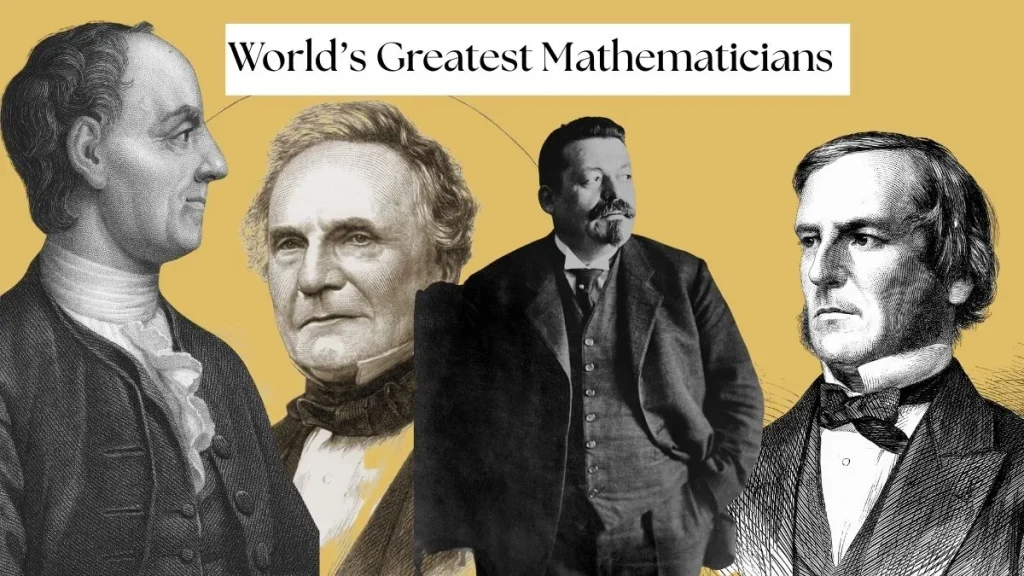Mathematics is often described as the language of the universe. From ancient geometry to modern computer science, mathematics has been the key to understanding nature, technology, and the very fabric of existence.
Behind this vast field stand extraordinary minds whose discoveries shaped the course of human history.
In this article, The New Daily Prime will show you ten of the most popular mathematicians in the world and how their ideas continue to influence modern civilisation.
Read Also: Nigerian Chiefs of Army Staff who died in office
1. Pythagoras (c. 570 – 495 BCE)

The story of mathematics begins with Pythagoras, one of ancient Greece’s most influential philosophers and mathematicians.
He is best remembered for the Pythagorean Theorem, which relates the sides of a right-angled triangle and remains a foundation of geometry.
Beyond geometry, Pythagoras believed that numbers were the essence of all things, linking mathematics with philosophy, music, and the cosmos.
His secretive school, the Pythagorean Brotherhood, viewed numbers as sacred and explored their hidden relationships, influencing both mathematics and spiritual thought.
2. Euclid (c. 300 BCE)

Known as the “Father of Geometry,” Euclid systematised mathematical knowledge in his monumental work, Elements.
This 13-volume text presented definitions, postulates, and logical proofs that organized geometry into a coherent system.
For more than two thousand years, Elements was used as the main textbook for teaching mathematics.
Euclid’s logical structure and proof-based reasoning became the foundation of modern mathematics, science, and even philosophy, inspiring generations of thinkers to view truth through the lens of logic.
3. Archimedes (c. 287–212 BCE)
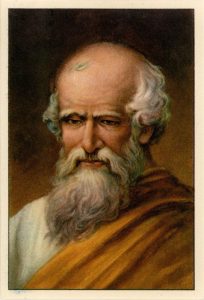
A genius of the ancient world, Archimedes was both a mathematician and an inventor. His contributions include the principle of buoyancy, the Archimedes screw for raising water, and advanced methods of calculating areas and volumes that predated modern calculus.
Archimedes was among the first to use infinitesimals to approximate the value of π (pi). His famous exclamation “Eureka!” (“I have found it!”) captures the joy of mathematical discovery. He remains a symbol of the union between theory and practical invention.
4. Isaac Newton (1643–1727)

Sir Isaac Newton is widely considered one of the greatest scientific minds of all time. In addition to co-inventing calculus, he formulated the laws of motion and universal gravitation, laying the foundation for classical physics.
His masterpiece, Philosophiæ Naturalis Principia Mathematica, not only unified celestial and terrestrial motion but also transformed mathematics into a tool for scientific investigation. Newton’s work continues to underpin modern engineering, physics, and technology.
5. Gottfried Wilhelm Leibniz (1646–1716)
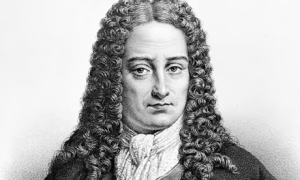
Around the same period as Newton, German philosopher and mathematician Leibniz developed his own version of calculus, introducing notations that are still used today, such as ∫ for integration and d for derivatives.
His work on binary numbers paved the way for the modern computer age. Beyond mathematics, Leibniz’s interest in logic, language, and reasoning contributed to the early development of symbolic logic, influencing fields as diverse as computer science and artificial intelligence.
6. Carl Friedrich Gauss (1777–1855)
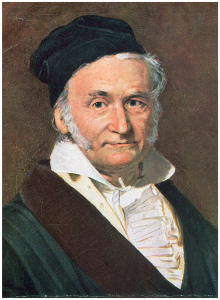
Known as the “Prince of Mathematicians”, Carl Friedrich Gauss made groundbreaking contributions to nearly every area of mathematics.
His book Disquisitiones Arithmeticae established the foundations of modern number theory. Gauss also developed the Gaussian distribution, a key concept in statistics, and contributed to geometry, astronomy, and electromagnetism.
His brilliance was evident from a young age; he famously discovered a quick method for summing numbers as a child. Gauss’s precision and creativity set a new standard for mathematical excellence.
7. Leonhard Euler (1707–1783)
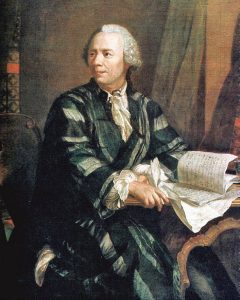
Swiss mathematician Leonhard Euler was a true giant in the history of mathematics. He introduced much of the mathematical notation used today, including f(x) for functions, i for the square root of -1, and e as the base of natural logarithms.
Euler made vast contributions to calculus, number theory, mechanics, and graph theory, and was known for his extraordinary productivity, publishing over 800 works in his lifetime. His ideas helped shape the structure of modern mathematics and physics.
8. Pierre-Simon Laplace (1749–1827)
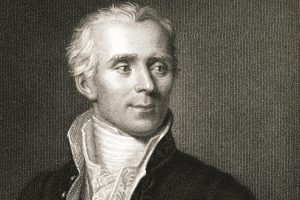
French mathematician and astronomer Pierre-Simon Laplace played a key role in advancing probability theory and celestial mechanics.
His five-volume Mécanique Céleste translated Newton’s mechanical principles into a rigorous mathematical framework, explaining the stability of the solar system. Laplace also developed the Laplace equation, fundamental in physics, engineering, and signal processing.
He is remembered as one of the pioneers who transformed Newton’s physics into a predictive, mathematical science.
9. Bernhard Riemann (1826–1866)
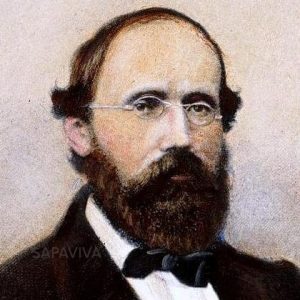
Bernhard Riemann reshaped mathematics with his development of Riemannian geometry, which became essential to Einstein’s theory of general relativity.
His revolutionary approach extended geometry beyond flat surfaces, allowing the study of curved space. Riemann also formulated the Riemann Hypothesis, one of the most famous unsolved problems in mathematics, concerning the distribution of prime numbers.
Though his life was short, Riemann’s ideas changed how we understand both mathematics and the structure of the universe.
10. Alan Turing (1912–1954)
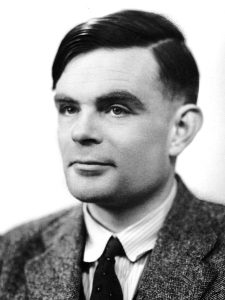
British mathematician Alan Turing is often called the father of modern computer science. His theoretical concept of the Turing Machine provided the foundation for computational theory and artificial intelligence.
During World War II, Turing’s codebreaking work at Bletchley Park helped decipher the German Enigma code, contributing greatly to the Allied victory.
After the war, his ideas inspired the development of early computers and AI research. Despite facing persecution for his sexuality, Turing’s legacy endures as a symbol of intellectual brilliance and courage.
From Pythagoras’s triangles to Turing’s algorithms, these ten mathematicians represent centuries of human curiosity and discovery. Their ideas form the backbone of geometry, calculus, probability, and computation, disciplines that shape our understanding of the world. Mathematics is not only about numbers; it is about patterns, logic, and the endless search for truth. The legacy of these mathematical pioneers continues to guide scientists, engineers, and thinkers across generations, proving that the power of the human mind knows no limits.


